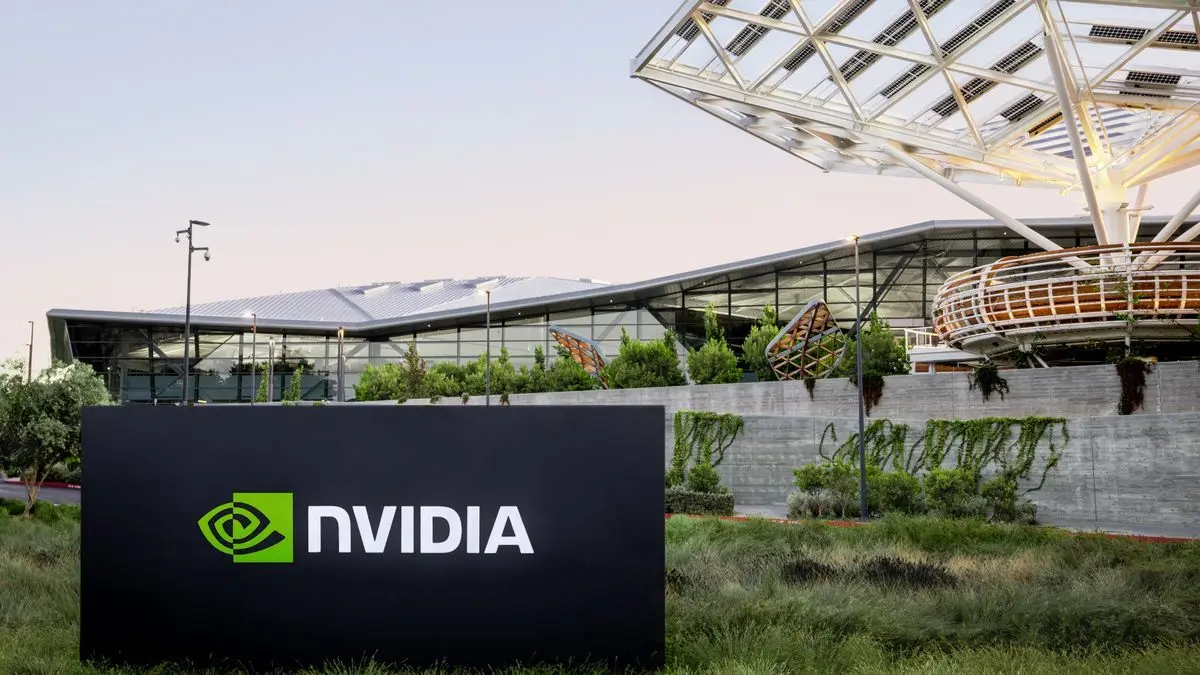Saudi Arabia's AI Ambitions: A Double-Edged Sword for Economic Growth and Human Rights
2 Sources
2 Sources
[1]
Saudi Arabia has big AI ambitions. They could come at the cost of human rights
This week, on his tour of the Middle East, United States President Donald Trump unveiled a suite of new deals with Saudi Arabia. Trump claimed the deals were worth more than US$1 trillion (A$1.5 trillion). This is likely an overestimate. What's less murky is that many of these deals involve the development of artificial intelligence (AI) technology. This news came shortly after Saudi Arabia's Crown Prince and de facto ruler, Mohammed bin Salman, launched a new company known as Humain to develop and manage AI. The company is part of Saudi Arabia's state-run investment firm, and is seeking to create powerful Arabic large language models. This would be significant for the more than 450 million people who speak Arabic around the world. These developments are part of Saudi Arabia's vision to become a global AI hub, as it tries to diversify its economy away from oil. But as AI grows in Saudi Arabia, it could have consequences - including for human rights. An absolute monarchy Saudi Arabia is an absolute monarchy in which the unelected king holds total authority in the way the country is run. According to nonprofit organisation Freedom House, the country "restricts almost all political rights and civil liberties". The country has been criticised by Human Rights Watch for human rights issues, including suppressing free speech and targeting government critics. In one extreme example, in October 2018, one of the government's most vocal critics, Washington Post columnist Jamal Khashoggi, was assassinated at the Saudi consulate in Istanbul, Turkey. A 2021 US intelligence report concluded Mohammed bin Salman approved the assassination. Discrimination against women is another major human rights concern. These issues have led to serious concerns about overall freedoms in the country. Becoming a global AI hub Saudi Arabia is expanding its efforts to extend economic opportunities while positioning the country at the forefront of global AI innovation. According to the Global AI Index, the country's public AI spending commitments significantly outrank those of the US and China, totalling more than $40 billion over the next decade. The newly-launched AI company, Humain, is at the centre of Saudi Arabia's efforts to become a global AI hub. This week the company announced a partnership with NVIDIA, which develops special computer chips known as graphic processing units - or GPUs - for AI. NVIDIA will support the creation of AI data centres in Saudi Arabia by exporting "several hundred thousand" of its most advanced GPUs over the next five years. Humain will also deploy an AI platform developed by NVIDIA to enable industries to create digital twins. These are virtual replicas of physical environments that aim to enhance efficiency and sustainability. Alongside its partnership with NVIDIA, Humain also announced a new US$5 billion partnership with Amazon Web Services. This will help build a suite of AI infrastructure in Saudi Arabia. More broadly, Saudi Arabia is embedding AI into urban development. The technology is at the heart of its megacity development known as The Line. AI is also being deployed to streamline traffic systems and enhance energy efficiency. This is something the general public in Saudi Arabia support. For example, a 2022 survey by Ipsos found 76% of adults in Saudi Arabia believed that products and services using AI have more benefits than drawbacks. This compared to a global country average of 52%. A digital authoritarian tool Saudi Arabia already uses AI and other digital technologies to monitor citizens and control dissent. For example, the country reportedly used spyware on devices belonging to Jamal Khashoggi's relatives in the lead up to his murder. The Line will also incorporate digital tracking systems of citizens. This has led some critics to describe it as a "surveillance city". With the country's track record in mind, the huge expansion of Saudi Arabia's AI capabilities creates further opportunities for the regime to use the technology in ways that could be of concern. In a 2024 paper political scientist Nayera Mohamed Hamed Ibrahim described AI in Saudi Arabia as being a "digital authoritarian tool" which further entrenched the absolute power of the monarchy and its control over civilian life. The technology risks becoming an even more powerful digital authoritarian tool in Saudi Arabia as the country continues its march to becoming one of the world's biggest developers of AI.
[2]
Saudi Arabia has big AI ambitions. They could come at the cost of human rights
This week, on his tour of the Middle East, United States President Donald Trump unveiled a suite of new deals with Saudi Arabia. Trump claimed the deals were worth more than US$1 trillion (A$1.5 trillion). This is likely an overestimate. What's less murky is that many of these deals involve the development of artificial intelligence (AI) technology. This news came shortly after Saudi Arabia's Crown Prince and de facto ruler, Mohammed bin Salman, launched a new company known as Humain to develop and manage AI. The company is part of Saudi Arabia's state-run investment firm, and is seeking to create powerful Arabic large language models. This would be significant for the more than 450 million people who speak Arabic around the world. These developments are part of Saudi Arabia's vision to become a global AI hub, as it tries to diversify its economy away from oil. But as AI grows in Saudi Arabia, it could have consequences -- including for human rights. An absolute monarchy Saudi Arabia is an absolute monarchy in which the unelected king holds total authority in the way the country is run. According to nonprofit organization Freedom House, the country "restricts almost all political rights and civil liberties." The country has been criticized by Human Rights Watch for human rights issues, including suppressing free speech and targeting government critics. In one extreme example, in October 2018, one of the government's most vocal critics, Washington Post columnist Jamal Khashoggi, was assassinated at the Saudi consulate in Istanbul, Turkey. A 2021 US intelligence report concluded Mohammed bin Salman approved the assassination. Discrimination against women is another major human rights concern. These issues have led to serious concerns about overall freedoms in the country. Becoming a global AI hub Saudi Arabia is expanding its efforts to extend economic opportunities while positioning the country at the forefront of global AI innovation. According to the Global AI Index, the country's public AI spending commitments significantly outrank those of the US and China, totaling more than $40 billion over the next decade. The newly-launched AI company, Humain, is at the center of Saudi Arabia's efforts to become a global AI hub. This week the company announced a partnership with NVIDIA, which develops special computer chips known as graphic processing units -- or GPUs -- for AI. NVIDIA will support the creation of AI data centers in Saudi Arabia by exporting "several hundred thousand" of its most advanced GPUs over the next five years. Humain will also deploy an AI platform developed by NVIDIA to enable industries to create digital twins. These are virtual replicas of physical environments that aim to enhance efficiency and sustainability. Alongside its partnership with NVIDIA, Humain also announced a new US$5 billion partnership with Amazon Web Services. This will help build a suite of AI infrastructure in Saudi Arabia. More broadly, Saudi Arabia is embedding AI into urban development. The technology is at the heart of its megacity development, known as The Line. AI is also being deployed to streamline traffic systems and enhance energy efficiency. This is something the general public in Saudi Arabia support. For example, a 2022 survey by Ipsos found 76% of adults in Saudi Arabia believed that products and services using AI have more benefits than drawbacks. This compared to a global country average of 52%. For example, the country reportedly used spyware on devices belonging to Jamal Khashoggi's relatives in the lead up to his murder. The Line will also incorporate digital tracking systems of citizens. This has led some critics to describe it as a "surveillance city". With the country's track record in mind, the huge expansion of Saudi Arabia's AI capabilities creates further opportunities for the regime to use the technology in ways that could be of concern. In a 2024 paper, political scientist Nayera Mohamed Hamed Ibrahim described AI in Saudi Arabia as being a "digital authoritarian tool" which further entrenched the absolute power of the monarchy and its control over civilian life. The technology risks becoming an even more powerful digital authoritarian tool in Saudi Arabia as the country continues its march to becoming one of the world's biggest developers of AI.
Share
Share
Copy Link
Saudi Arabia's push to become a global AI hub raises concerns about potential human rights implications, as the country invests heavily in AI technology while maintaining its authoritarian governance structure.

Saudi Arabia's AI Ambitions
Saudi Arabia is making significant strides in its quest to become a global artificial intelligence (AI) hub, with recent developments highlighting the country's commitment to this goal. Crown Prince Mohammed bin Salman has launched a new AI company, Humain, as part of the state-run investment firm, aiming to create powerful Arabic large language models
1
. This initiative is poised to impact over 450 million Arabic speakers worldwide and forms a crucial part of Saudi Arabia's vision to diversify its economy beyond oil.Massive Investments and Partnerships
The scale of Saudi Arabia's AI ambitions is reflected in its substantial financial commitments. According to the Global AI Index, the country's public AI spending commitments surpass those of the US and China, with plans to invest more than $40 billion over the next decade
1
.Humain has announced two major partnerships:
- A collaboration with NVIDIA to create AI data centers in Saudi Arabia, involving the export of "several hundred thousand" advanced GPUs over five years
2
. - A $5 billion partnership with Amazon Web Services to build AI infrastructure in the country
2
.
AI Integration in Urban Development
Saudi Arabia is also incorporating AI into its urban development projects. The technology is central to the megacity development known as The Line, and is being used to optimize traffic systems and improve energy efficiency
1
.Public Support and Perception
The Saudi public appears to be supportive of these AI initiatives. A 2022 Ipsos survey found that 76% of adults in Saudi Arabia believed AI products and services offer more benefits than drawbacks, significantly higher than the global average of 52%
2
.Related Stories
Human Rights Concerns
However, Saudi Arabia's AI ambitions are not without controversy. The country's absolute monarchy, led by an unelected king with total authority, has been criticized for its human rights record. Freedom House reports that Saudi Arabia "restricts almost all political rights and civil liberties"
1
.There are concerns that AI could be used to further entrench the monarchy's power and control over civilian life. For instance:
- The country has reportedly used spyware on devices belonging to government critics' relatives
2
. - The Line megacity project is set to incorporate digital tracking systems, leading some to describe it as a "surveillance city"
1
.
AI as a Digital Authoritarian Tool
Political scientist Nayera Mohamed Hamed Ibrahim has described AI in Saudi Arabia as a "digital authoritarian tool" in a 2024 paper
2
. As Saudi Arabia continues its march towards becoming one of the world's largest AI developers, there are growing concerns about the potential misuse of this technology to further suppress dissent and control the population.References
Summarized by
Navi
[1]
Related Stories
Saudi Arabia Launches Multibillion-Dollar AI Venture 'Humain' Amid High-Profile Tech Summit
12 May 2025•Business and Economy

Saudi Arabia's $600 Billion AI Push: Nvidia and AMD Partnerships Spark Global Tech Race
14 May 2025•Technology

Trump's Middle East Visit Sparks $600 Billion AI Investment Surge
14 May 2025•Business and Economy

Recent Highlights
1
Google Gemini 3.1 Pro doubles reasoning score, beats rivals in key AI benchmarks
Technology

2
Pentagon Summons Anthropic CEO as $200M Contract Faces Supply Chain Risk Over AI Restrictions
Policy and Regulation

3
Canada Summons OpenAI Executives After ChatGPT User Became Mass Shooting Suspect
Policy and Regulation





